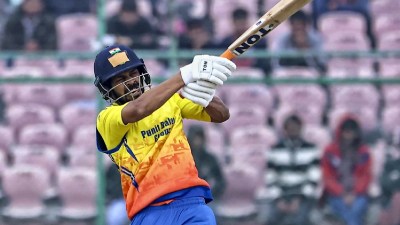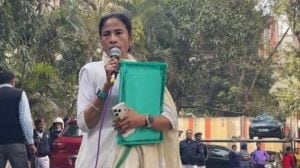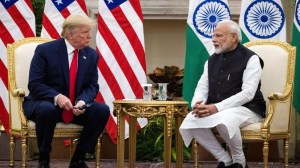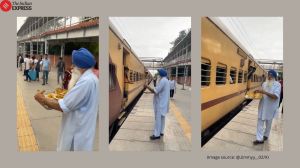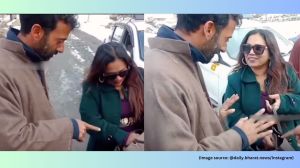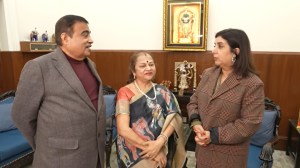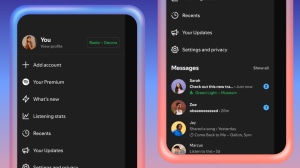Time for Muslims to help the party. Which party?
NEW DELHI, January 28: Inside Delhi's Walled City, Id shoppers jostle for space on overflowing sidewalks, buying garments, greeting cards an...

NEW DELHI, January 28: Inside Delhi8217;s Walled City, Id shoppers jostle for space on overflowing sidewalks, buying garments, greeting cards and gifts against the backdrop of an illuminated Jama Masjid.
The scene would be a psephologist8217;s delight. Ah, here if anywhere, lies empirical evidence of the famed 8220;Muslim vote bank8221;, a term that rises from the dead with every general election.
Given the fact that an estimated one in every nine voters is a Muslim, and that his or her vote can decisively influence the outcome in some 200-odd constituencies in the country, the so-called Muslim Vote8217; has long been regarded as the single most decisive factor in Indian elections.
But is this 120-odd million community, 55 per cent of whom live in three states, Uttar Pradesh, Bihar and West Bengal, really homogeneous in its voting behaviour? Reality is, as always, more complex than the calculations of pollsters and politicians.
If you ask people in Delhi8217;s Walled City which party deserves to govern India, you couldcome up with at least four different answers.
But it is Hassan Mirza, proprietor of Jawahar Hotel 8220;cheapest and best restaurant, delicious food, decent service8221; who seems the natural sociologist, as he stirs his mutton korma bubbling in its stainless steel ontainers. 8220;What are our demands? The same as everyone else. Look at the rising prices 8212; it is like a tightening noose around our necks.8221;
Political parties, says Mirza flatly, only spin yarns.8220;The Janata Dal says that it is with us. The Congress begs us to forgive it. The BJP promises that there will be no riots when it comes to power. But, going by trends, it would seem that the poor Muslims here will still vote for the Janata Dal, while the better-off, more literate section, will go for the Congress.8221;
Mirza also points out that people today will also no longer blindly follow the diktats of anImam. 8220;Television has changed everything. Earlier, people here depended on those who could read newspapers to interpret politics for them. Today, when everything from riots to Sonia Gandhi8217;s speeches are being shown on TV, people are making up their own minds,8221; says Mirza. And as if to clinch the argument he adds, 8220;Even our womenfolk.8221;
These homespun observations strike a chord of agreement in Shamim Hanifi, professor of Urdu, Jamia Millia University. Says he:8220;Today, concrete images in this age of TV is playing a tremendous role in influencing the public.8221;But will this new media-generated awareness coalesce opinion within the community or divide it? 8220;Only these elections will tell,8221; says Hanifi. But there is a distinct impatience with term 8220;Muslim vote bank8221;. Dr Tahir Mehmood, chairperson, Minorities Commission, has even written to the Election Commission stating that using such a term is a violation of election law.
Says Mehmood, 8220;Nobody speaks of a Hindu vote bank8217;. Also, for politicalparties to claim that they will protect Muslims if they come to power is ridiculous. Once they get elected they have a constitutional obligation to protect every citizen in this country.8221;
But, at the same time, he does not deny a rise in the political consciousness of Muslims. Says he,8220;They only want to be recognised as equal citizens. Since they have found themselves to be second-class citizens, if they have an opportunity they will unite and vote.8221;
Former MP Syed Shahbuddin calls it tactical voting.
Says he, 8220;It8217;s false to claim that Muslims vote in a monolithic fashion. Since 1977, when they made a decisive break with the Congress, there has been no discernible pattern in the Muslim vote. However, there is a tendency for Muslims to vote unitedly at the constituency level in order to defend themselves politically. I would call it tactical voting.8221;
Tomorrow: How they voted 8220;tactically8221; in the last two elections.
- 01
- 02
- 03
- 04
- 05


